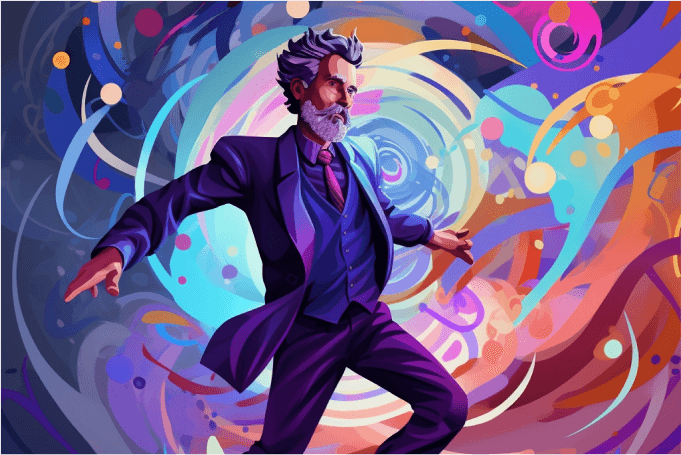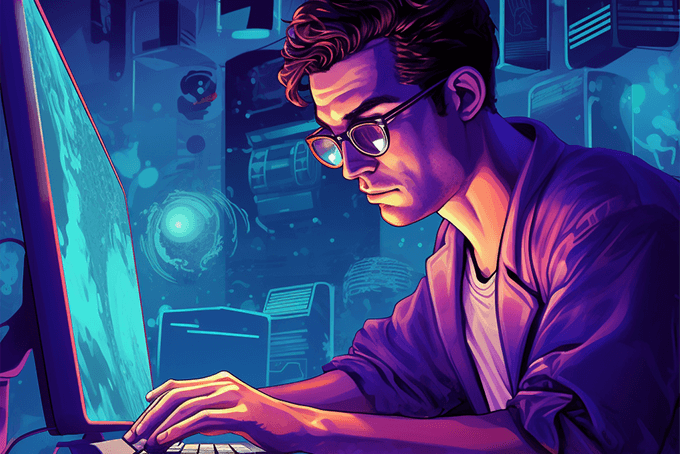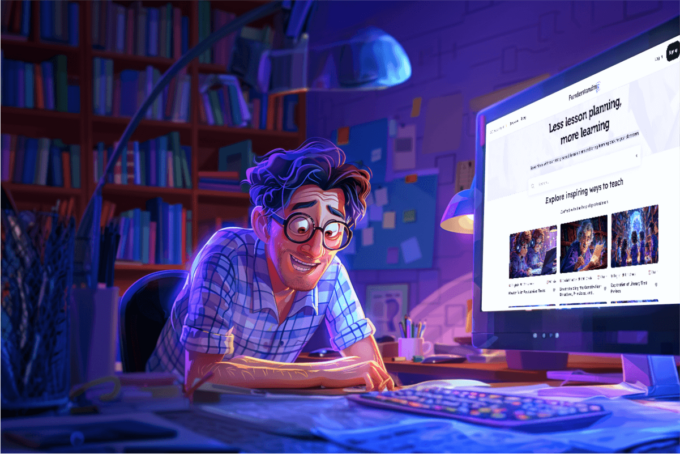At the heart of the “AI in Education Debate,” we face pressing questions: How can Artificial Intelligence revolutionize learning, and what risks does it pose in our educational systems? Does it enhance personalized learning and efficiency, or does it bring ethical concerns and a loss of essential human elements in education? These pivotal questions guide our exploration.
Socrates: My friends, we gather today to consider an important question – is artificial intelligence constructive or destructive when used in education? This new technology promises many benefits, yet also raises concerns. To properly evaluate its impact, we must look at it from all sides.
Let us first hear from those who believe AI can enhance learning. What arguments do you make for its constructive potential?
Protagoras: Wise Socrates, AI offers many advantages as an educational tool. It can provide personalized instruction, adapting to each student’s level and needs. With machine learning, AI tutors can continuously improve their teaching methods based on data and feedback. This allows for more effective and efficient education compared to sole reliance on human teachers.
AI also enables interactive simulations and immersive environments for experiential learning. Rather than merely reading about history or science, students can be transported to engaging 3D worlds that bring subjects to life. Such active learning promotes deeper understanding and retention.
Additionally, AI has unlimited patience and availability – it can answer students’ questions at any time of day or night. This expands access to education, especially for those unable to attend traditional classes due to schedule or location constraints. We should embrace AI’s potential to make quality education more accessible and captivating for all.
Socrates: Those are fair arguments. Now let us consider the opposing view – what concerns might one have about introducing AI into education?
Glaucon: Socrates, you are wise to highlight the risks. While AI promises much, it could also rob students of human connections essential for meaningful education. There is no replacement for a compassionate teacher who understands the hearts and minds of students. Over-reliance on AI could make education feel cold and impersonal.
We must also consider the ethical implications. Should we allow machines to fully control the learning process? What biases could be unintentionally built into their programming? And how could overuse of AI make students intellectually lazy rather than sharpening their critical thinking skills?
Additionally, AI in its current state still cannot match human intelligence. Its limitations could constrain the learning experience or even lead students astray if its knowledge is incomplete. We should be wary of too quickly displacing seasoned educators with untested technologies.
Socrates: I see this issue has convincing points on both sides. To find the truth, we must dig deeper. Protagoras, could AI develop the compassion and wisdom of a human teacher over time? Is this not its promise?
Protagoras: The potential is there, Socrates. Today’s AI is still primitive – with further advances in machine learning and emotion recognition, AI tutors could become more empathetic and personalized. We already see glimmers of this in experimental systems. But you raise a valid concern – we must ensure AI has sufficient human oversight and feedback to develop in a wise direction that supports students’ holistic growth. With prudent design and use, AI could come to complement human teachers rather than replace them.
Socrates: And Glaucon, do you maintain all learning must be bound to human teachers alone? Does this not limit exploration of new modes and methods that could benefit more students?
Glaucon: You make a fair point, friend. While the human element is indispensable, it may be possible for AI to enhance education if used prudently. The key is striking the right balance – designing AI tools that amplify teachers’ abilities and free them for more meaningful interactions, while keeping the human firmly in control. With vigilance and care, AI and teachers could each play to their strengths. But we must continually evaluate its impacts and guard against unintended consequences. AI should not guide education but be guided by it.
Socrates: Glaucon and Protagoras, let us further probe your perspectives on AI’s role in learning. I believe wisdom lies between your positions – neither outright rejection nor embrace without caution.
Protagoras, while AI promises benefits, does it not also risk students losing intangibles gleaned from human teachers – empathy, compassion, character? Can AI truly develop such intangibles?
Protagoras: Esteemed Socrates, you speak wisely. AI in its present state cannot replicate the emotional resonance of a devoted mentor. Yet we see promising steps toward cultivating care and compassion in machines – just look at social robotics research! With continued progress, AI could gain empathetic capabilities and moral wisdom. But this will require extensive human guidance, creativity, and ethics. We cannot expect AI to spontaneously become caring without purposeful nurturing. You are right – integrate AI we must, but with great prudence and vigilance.
Socrates: Well said! And Glaucon, do you maintain AI has no constructive purpose in education? Cannot it, in partnership with teachers, enhance and expand learning opportunities?
Glaucon: I acknowledge AI could aid teachers in discrete ways, Socrates. But we must constrain its role to be strictly as an assistant. Allowing algorithms any significant control over teaching risks undermining human judgments that should guide young minds. Historical horrors arose from ceding power to unchecked systems. While AI shows promise, wisdom dictates we carefully monitor its introduction, keeping the human firmly at the helm.
Socrates: But is prohibiting its use not also an extreme? Do we not lose opportunities to engage students through means that speak to their generation?
Glaucon: You speak wisely, Socrates. AI likely cannot, and should not, be banned entirely from education when applied prudently. But how do we ensure prudent application? Protagoras, do you share my wariness about allowing AI too much direction of teaching? What guards can we erect?
Protagoras: Friend Glaucon, you are right to express caution. Unconstrained use of AI risks undervaluing human intelligence and wisdom. Strict regulation of how AI is designed, deployed and overseen in education is imperative. AI should support, not drive, the learning process, with teachers closely evaluating its pedagogical impacts. Those developing and implementing AI must do so ethically and transparently. With sufficient safeguards and accountability measures, AI could play a constructive role in service of human-guided education. We must walk this path with great care.
Socrates: Excellent points, both. It seems prudent integration, vigilant oversight and continuous ethical scrutiny are essential to harness AI’s benefits while avoiding its perils. This balanced view aligns with wisdom. We must neither reject nor blindly embrace emerging technologies, but guide them toward virtue through examination and care. Please, my friends, continue this important discussion – what specific policies and practices could foster responsible use of AI in our schools? How can we ensure it uplifts, rather than diminishes, the humanity of all involved? On these points we must dig deeper.
Glaucon: Socrates, you speak with your customary wisdom. To develop wise policies on AI in education, we must…
Socrates: My friends, you have both argued wisely and surfaced key issues. It seems clear that AI offers great promise in education, yet also risks if applied recklessly. This calls for an approach of caution and care – embracing AI’s potential benefits but also studying its impacts rigorously. We must shape its development through human wisdom and ethics, not allow it to shape us.
Rather than categorical judgments of good or evil, we need nuanced understanding. The prudent path is to incrementally integrate AI into education in thoughtful ways, while continuously evaluating and guiding its evolution. Teachers, students and society as a whole must remain the drivers of this process, discerning when AI aids learning and when it hinders the human spirit’s highest aims. With wisdom and vigilance guiding its implementation, AI could make education both more effective and more accessible. But we must discuss and debate its appropriate role endlessly, for this technology will influence generations to come.
What are your thoughts, my friends? Have we reached a fair assessment, or are there points we have overlooked? Let us continue this discussion, for it is far from concluded. The examination of what is best must never cease.



